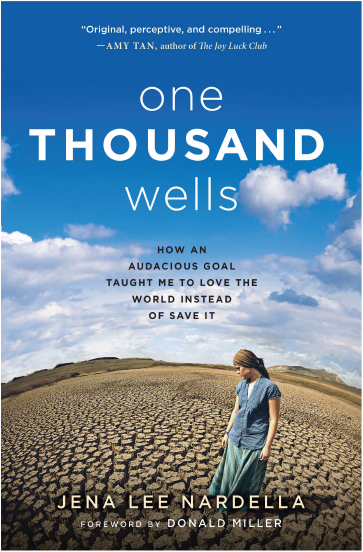Summary
Upon attending the funeral of a college friend in Lwala, Kenya, Jena learns about the practice of ignoring grief due to the high frequency of death in the community. She also witnesses extreme cultural differences when she spends time with women in the village–including the women’s lack of knowledge about HIV/AIDS, the abuse the women withstand on a day-to-day basis from their husbands, and the belief that they deserve to be treated like property. And finally, before leaving Lwala, she and Joel learn about the dream of their friend Milton’s father: a clinic in Lwala. We later learn that with the help of Blood:Water, this dream became a reality.
Later, Jena sees how access to clean water affects the lives of those living in Rwanda–when they do not have to walk hours for water each day, children can go to school and women can care for their communities.
Along the way, Jena reconnects with James, a volunteer for charity: water, who she had met at a United Nations global water event in New York. A year later, Jena and James marry. Soon after, following a time of newfound confidence in herself and Blood:Water’s direction, the organization experiences what Jena calls a fall down the mountain.
Difficulties emerge as Blood:Water works to bring clean water to the desolate and “earth-crumbling dry” Masabit Dessert during an intense drought. Without a mature system in place, Lwala Clinic struggles to bring the necessary resources to communities stricken with HIV/AIDS, the disease that was silently and rampantly destroying communities and lives. And after the leader of Blood:Water’s partner Water for Women’s Groups (WWG) proves to have been dishonest with the organization’s funds, Blood:Water is forced to end its first, most beloved partnership. The romanticism of Blood:Water’s vision begins to vanish, and Jena becomes overwhelmed by the brokenness she is trying to heal. She feels as if they are trying to put out a forest fire with a drop of water.
Powerful Lines
- If you’re living with the sheer terror of abduction and rape and child soldiers, you’re not going to take time to learn about how to wash your hands properly. (162)
- Why is it that I have every physical need met? I asked myself. Why is it that I get to leave this camp and fly home to a place of freedom and abundance? (162)
- They didn’t complain. They just tried every day to survive. (162)
- I was closer to grasping that more than a billion people live on a dollar a day, that poor countries are unable to address their own development because they are funneling all their funds toward debt repayment to rich and unforgiving countries, that preventable diseases continue to steal lives by the millions, that human beings still terrorize one another. (163)
- As Gary Haugen said, by some great mystery and enormous privilege, God has chosen to use his people, empowered by the Spirit, to complete the task of pursuing justice. (193)
- But sometimes human capability meets its threshold, and we learn the truth about what we can and cannot do…we cannot bring the rain. (202-203)
Questions to Ponder
- Jena and Caitlin visit with some of the women living in the community of Lwala, and are taken aback by the profound cultural differences between American and African women. What was the most eye-opening contrast that you read about? Would you find it hard, in that situation, to respect, rather than disrupt, certain aspects of another’s culture?
- James observes that “no matter what direction you take in your life–be it acting, business, or any job you may love–you still have to take into account the fact that places in northern Uganda exist.” It would be unrealistic to think that all of us can get up from our families and jobs and fly to Africa. But James argues that regardless of the circumstances, we still have to acknowledge the injustices and impoverished situations–the brokenness–in this world. Take a minute to think about what this looks like in your life. What does that mean for you in your given circumstances in life?
- After all the persistence, money, and work the people of Marsabit and Blood:Water did to prepare to bring clean water to their community, Jena says the one thing they could not do was bring the rain needed to fill the rain tanks. For Jena, this felt like a failure. She realized no matter what she did, she could not make the rain come, nor could she take the HIV/AIDS crisis away. What does this teach us about the world we live in? What does it teach us about human efforts? Where does our true hope lie?

